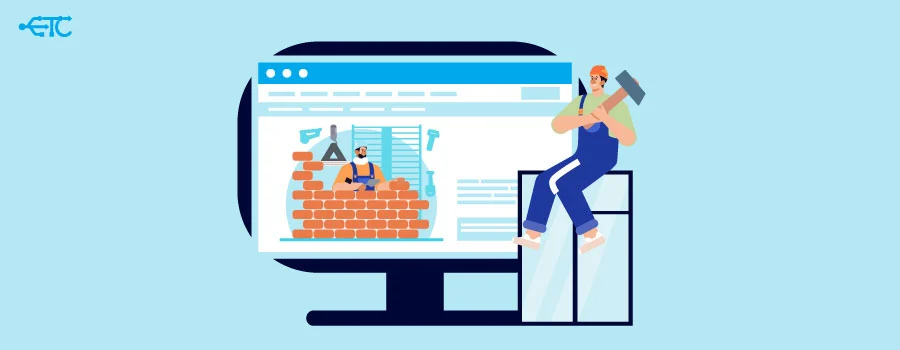From Blueprint to Reality: The role of CRM in Construction Project Success

Did you know that in the dynamic realm of construction, harnessing the capabilities of Customer Relationship Management (CRM) can be the game-changer your projects need? From streamlining operations to enhancing client relationships, CRM is revolutionizing how construction companies bring blueprints to life.
What is a construction CRM ?
A Construction CRM (Customer Relationship Management) is more than just software; it’s your project command center. Tailored for construction companies, it seamlessly manages interactions with clients, customers, and leads. With features like contact management, lead tracking, project oversight, and robust communication tools, a Construction CRM is the cornerstone of efficiency, productivity, and unparalleled customer service.
What are the key features of a construction CRM software?
• Contact Management:
Store and organize crucial customer information, ensuring easy access to contact details, notes, and communication history.
• Sales Management:
Effortlessly track your sales pipeline, from lead generation and quotes to successful conversions.
• Project Management:
Stay on top of your construction projects, managing timelines, budgets, and task assignments with ease.
• Communication and Collaboration:
Enhance teamwork and client interactions through effective communication tools like email, messaging, and project management features.
• Reporting and Analytics:
Gain valuable insights into your business performance with data visualization and reporting, covering sales, customer engagement, and project progress.
• Mobile Accessibility:
Adapt to the demands of remote work with mobile apps that empower users to manage workflows from anywhere.
• Integration:
Seamlessly connect your CRM with other essential software and tools, including accounting systems, project management software, and email marketing tools.
• Customization:
Tailor the CRM software to your unique business needs, ensuring a personalized and efficient user experience.
What benefits can a Construction CRM provide for a construction company?
A construction CRM (customer relationship management) software allows construction companies to better manage and organize their interactions with customers, clients, and leads. Some of the benefits of using a construction CRM include :
• Enhanced Communication and Collaboration:
Facilitate seamless interactions among team members and departments, fostering a collaborative and communicative environment.
• Increased Efficiency and Productivity:
Automate repetitive tasks and streamline workflows, allowing your team to focus on what matters most.
• Greater Visibility:
Gain insight into customer interactions, sales pipelines, and project progress for informed decision-making.
• Improved Lead and Opportunity Management:
Track and manage leads effectively, identifying new opportunities and upselling to existing customers.
• Enhanced Customer Service:
Quickly access customer information, leading to improved customer service and support.
• Advanced Reporting and Analytics:
Utilize powerful tools to analyze business performance, paving the way for data-driven decision-making.
• Revenue Growth:
Identify and target new business opportunities, ultimately boosting your revenue.
• Effective Subcontractor and Supplier Management:
Streamline the management of subcontractors and suppliers for smoother operations.
• Optimized Field Operations:
Efficiently manage field workers and track their progress for enhanced project outcomes.
• Improved Financial Management:
Utilize invoicing and billing features for effective financial management.
• Mobile Accessibility:
Stay connected and productive with the ability to access project information anytime, anywhere.
How to choose the right CRM software development company ?
Choose a company with a proven track record in developing CRM systems for businesses similar to yours.
• Customization Capabilities:
Ensure the company can customize the CRM system to align with your specific business needs.
• Integration Capabilities:
Confirm that the CRM system seamlessly integrates with other systems and software used by your business.
• Scalability:
Ensure the CRM system can scale as your business grows.
• Technical Support:
Opt for a company that provides ongoing technical support and maintenance.
• Cost:
Compare costs and services, selecting a company that fits your budget while offering necessary features.
• Testimonials and References:
Seek a company with positive references and testimonials from previous clients to establish reliability.
• Security:
Prioritize data security, ensuring the CRM software meets industry standards for data protection.
How popular is CRM in the construction industry?
The adoption of CRM in the construction industry is gaining traction as companies seek to enhance customer relationships and streamline operations. It proves instrumental for managing leads, tracking sales, and overseeing projects, while fostering efficient communication and collaboration among employees, clients, and partners. Furthermore, the data captured in a CRM system offers valuable insights into customer behavior and industry trends, empowering companies to make informed business decisions. It’s worth noting, however, that CRM adoption in the construction sector may not be as widespread as in other industries, given the industry’s conservative approach to technology adoption.
